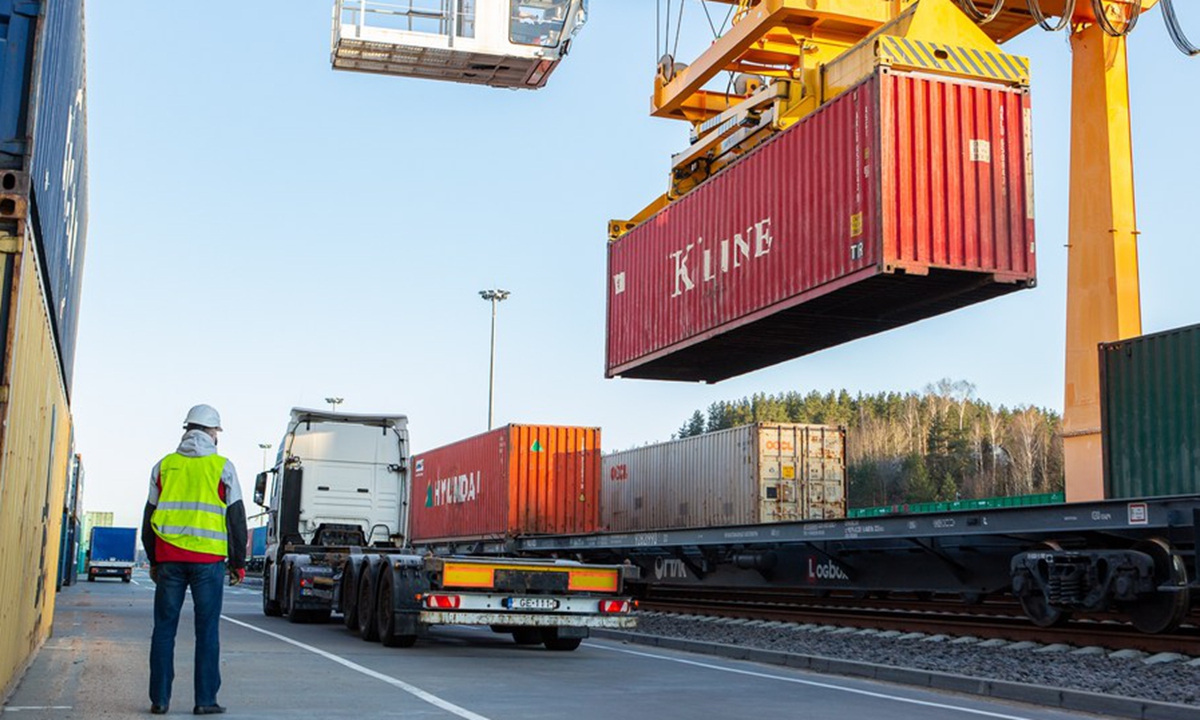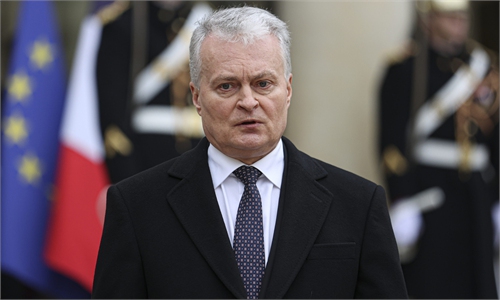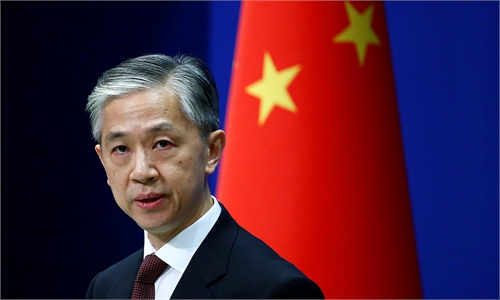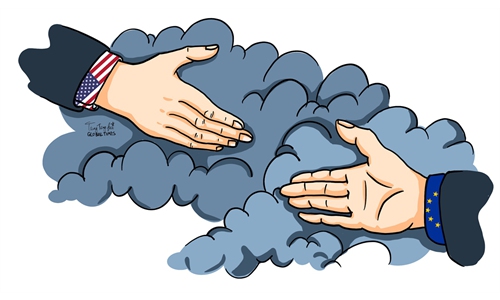
The "China Post" CR Express 1st block train is unloading in Vilnius, Lithuania, April 14, 2020. Photo: Xinhua
Lithuania's Economy Minister Ausrine Armonaite said on Tuesday that the island of Taiwan has strengthened its financial commitment to Lithuania by launching a $1 billion credit fund for joint investment projects between the two parties.If this cooperation is meant to give Lithuania support to continue its mistakes that undermine China's core interests, then it risks provoking a heavy response from the Chinese mainland.
Lithuania made a mistake, as President Gitanas Nauseda has publicly admitted, by allowing the establishment of the "Taiwan Representative Office" in its capital Vilnius, which was a direct violation of the one-China principle. That prompted China to take the necessary diplomatic action to preserve its national sovereignty, and some Chinese mainland companies stopped cooperating with Lithuania, which caused pain for the country.
It was the inevitable result of trying to undermine the core interests of the world's second-largest economy. China has not announced any economic countermeasures against Lithuania, but business decisions to avert political risks have already hurt the Baltic country, and the pressure will not stop there if Lithuania is bent on going its own way.
While the secessionist authorities on the island of Taiwan did not specify what the potential projects were, Vilnius seemed so excited about potential investments in semiconductors, lasers and biotechnology that they said in a press release that its trade representatives would start working on the island this spring.
Lithuanian politicians have shown their short-sightedness in challenging China's sovereignty. What is surprising is their lack of common sense about their ability to attract investment projects and their global competitiveness in technology.
For anyone with some basic understanding of the global semiconductor industry, Lithuania does not have any of the key factors that support chip production, and it would be nothing more than wishful thinking to expect a piece of the pie in the sector at a time when major global economies are trying to establish their own semiconductor supply chains.
Although some Taiwan-based companies are an important part of the global semiconductor industry, they are inextricably linked to the mainland's supply and industry chain and market, and that gives the mainland sufficient means to respond when necessary. Moreover, objectively speaking, the mainland has the ability to displace key products from Lithuania's so-called key industries and keep pushing it out of the global industrial chain.
Lithuania has proven itself to be a political opportunist. Although it is willing to be a pawn of the US on the Taiwan question, this does not mean that it is capable of coping with the consequences of hurting China's core interests.
So far, Chinese officials have never announced any economic measures against Lithuania, but China's constant lowering of its relations with Lithuania is alarming enough to send shockwaves throughout the business community, leading to pressure that Vilnius can no longer handle.
The right course of action for Lithuania is to admit to its mistakes and correct them. The further it goes down the wrong path, the more severe the blow will be. It is useless for Lithuania to engage in pleading diplomacy and beg for help from the US and others.
Vilnius has pretended until now to be a small country that insists on so-called justice. On the Taiwan question, Lithuania has made a mistake, and it is Lithuania that has violated the basic principles of diplomacy between nations. If Lithuania's cooperation with the island is at the expense of China's core interests, how can it get concessions or forgiveness from China?



